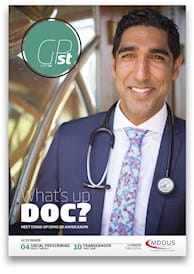FOR many people, the field of urology conjures up images of endless consultations about men and their prostates. But this varied specialty offers so much more – and not just for hospital specialists. More and more GPs are developing an interest in this area, often working in community clinics assessing, diagnosing and devising care plans for a variety of common urological conditions such as kidney, bladder or urinary tract problems. Taking the pressure off secondary care, such services can dramatically reduce both waiting times and patient anxiety. GPs who develop an interest in this area can undertake a variety of roles in hospital or community settings or in educating fellow GPs.
New framework
The Royal College of GPs recently launched a new framework for GPs with extended roles (GPwERs), the new term for GPs with a special interest (GPwSIs).
It states: “Since the dissolution of Primary Care Trusts in 2013 there has been no consistent process in England for the accreditation of GPwERs/GPwSIs.
“The RCGP is trialling GPwER accreditation in dermatology and skin surgery, and subject to the outcome of the trial we will seek to phase in accreditation in a limited number of other priority areas. For now, we advise GPs to follow the generic framework and contact providers and commissioners to understand local requirements.”
 Q&A – Dr Jon Rees, GP with a special interest in
urology, founder and chair of the Primary Care
Urology Society
Q&A – Dr Jon Rees, GP with a special interest in
urology, founder and chair of the Primary Care
Urology Society
What attracted you to a career in urology?
I have to admit, I hadn’t given urology a second thought as a medical student or as a house officer – no lifelong passion to help people pass urine better for me! I did my first urology job as an SHO, starting a surgical rotation at Musgrove Park Hospital in Taunton. I worked for two fantastic consultants – Ru MacDonagh and Mark Speakman – and the enjoyment of urology came from my time working for them.
I subsequently worked for Ru MacDonagh as his research fellow, spending three years on my MD thesis, looking at the effect of prostate cancer on the quality of life of men and their partners.
However, it was during this research, much of which was spent interviewing men in their own homes, that I discovered there was a whole world of medicine outside hospitals, and the idea of switching to general practice followed. However, I did not want to abandon urology and have continued to work two days a week running community urology clinics in Bristol, North Somerset, Gloucestershire and now also in Wiltshire.
What do you enjoy most about the job?
Running the community urology clinics is a great way of maintaining a skill, and I enjoy having an area of medicine in which I feel I have more than the generalist level of knowledge. General practice has a habit of making you feel like a ‘jack of all trades, master of none’, and I think having a specialist interest can help maintain professional self-esteem.
I enjoy the fact that urology is a specialty that gives me the chance to make a significant impact on people’s quality of life. I have a particular interest in managing lower urinary tract symptoms and recurrent UTI – highly bothersome conditions for patients – and there is great job satisfaction from helping patients with these problems.
If I’m really honest, I also really enjoy being in a specialist clinic which allows me to concentrate on one problem in each consultation. It’s quite nice to be able to occasionally advise people to see their GP for non-urological problems rather than having to deal with everything.
Are there any downsides?
Only the need to keep up-to-date in a specialty which does require extra work – but it’s not a big problem.
What do you find most challenging?
I am a six-session partner in a large 32,000 patient, four-site practice, and am currently one of the executive partners, with extra responsibility for running the practice. So adding my urology interest alongside this means I am very busy and need to be pretty organised – definitely challenging.
What about the role has most surprised you?
Urology is an increasingly medical specialty, but with patients seen by highly trained and specialised surgeons. I am increasingly surprised by how many patients who are referred to secondary care could be successfully managed outside this highly specialised setting, allowing the surgeons to have a better chance of managing the huge workload of the patients who do need their level of expertise.
What is your most memorable experience so far?
Mostly too graphic or unpleasant to detail here! Let’s just say, people sometimes insert very strange objects in places they shouldn’t (and sometimes it is very hard to understand how they achieved it…) What are the most common misconceptions about your job or about the specialty itself? I suspect the most common misconception is that urology is just men and their prostates – in reality, it’s a varied specialty – oncology (prostate / bladder / testicular / renal / penile cancer), stones, andrology, functional urology (e.g. urinary symptom management), infection etc.
Describe a typical working week
Monday, Wednesday and Thursday are spent in my GP practice. I see the usual wide range of problems, but do also see a disproportionate amount of patients with urological problems, as many patients are aware this is my area of interest. I also run urological research at the practice – currently we are recruiting for two trials for men with lower urinary tract symptoms.
Tuesdays and Fridays are spent in urology clinics, either hosted in my own practice, or in Bristol, Gloucester and Swindon. I also run an advice and guidance / referral management service for our local CCG, which requires me to look at all non-two-week wait referrals every evening. In addition I have a number of other roles – charity trustee (Health Improvement Project Zanzibar www.hipz.org.uk), journal editor, and working with national organisations such as Prostate Cancer UK. It’s a busy week.
What are the tools that you can’t live without in your day-to-day work?
The obvious answer is a box of gloves and a tube of KY jelly! In reality, that is not far from the truth, but I also use the flexible cystoscope, the flow machine and bladder scanner etc. That’s about it though.
What opportunities are there for a GPwSI/GPwER in urology?
There are lots of opportunities and there are not many GPs with an interest in this specialty – hospital roles, community roles, GP education etc are all possible. It’s a fantastic opportunity to do something a bit different.
Is there any advice you could give to a trainee GP considering a career in urology?
Join the Primary Care Urology Society and meet other GPs who are interested in urology. It is free to join, and we hold an annual study day in London in November each year. Urology is a fantastic specialty to be involved in and I would strongly encourage any trainee GP who is interested to come to our meeting.
Further information
This page was correct at the time of publication. Any guidance is intended as general guidance for members only. If you are a member and need specific advice relating to your own circumstances, please contact one of our advisers.
Read more from this issue of Insight Primary

Save this article
Save this article to a list of favourite articles which members can access in their account.
Save to library